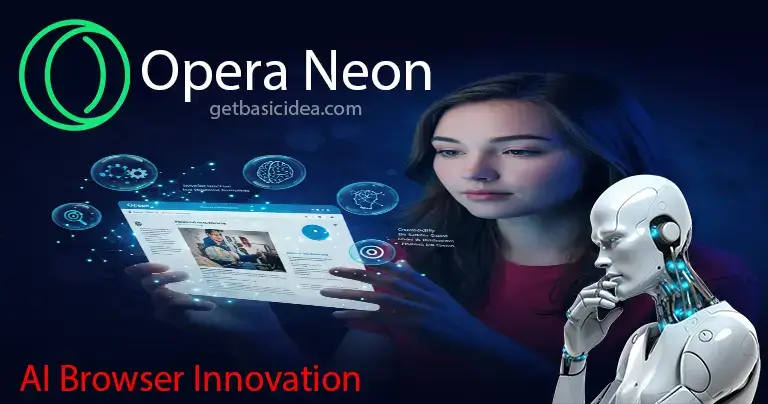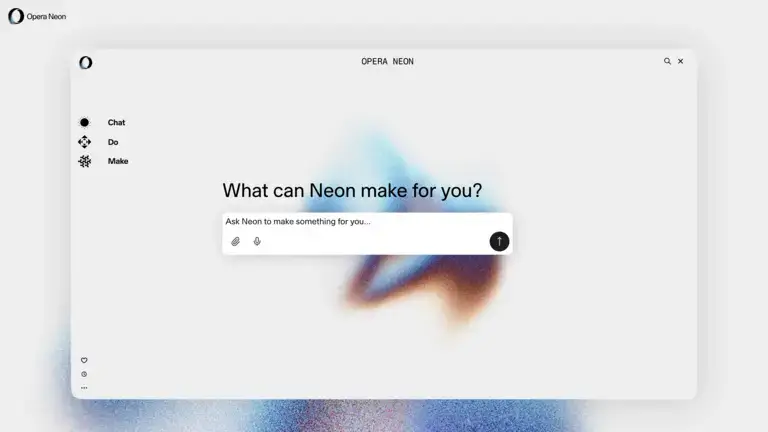
The future of web browsing has arrived with Opera Neon, a groundbreaking AI-powered browser unveiled by Opera, the Norwegian tech innovator. This revolutionary 'agentic' browser is designed to transform how users interact with the internet, leveraging advanced artificial intelligence to automate tasks, enhance productivity, and deliver a seamless browsing experience. Let’s dive into what makes Opera Neon a game-changer in the world of web browsers.
What is Opera Neon?
Opera Neon is the world’s first AI agentic browser, announced on May 28, 2025, by Opera [NASDAQ: OPRA]. Unlike traditional browsers, Neon goes beyond simple navigation, using AI to understand user intent and perform complex tasks autonomously. From coding websites to booking trips and generating reports, this browser is built to act as a personal assistant, making it a standout in the rapidly evolving landscape of AI browser innovation.
The browser introduces three core AI-driven features: Neon Chat, Neon Do, and Neon Make. These tools work together to redefine how users engage with the web, prioritizing efficiency, privacy, and creativity.
Key Features of Opera Neon

- Neon Chat: A built-in chatbot that provides real-time web searches, contextual answers about web pages, and personalized assistance. Whether you’re researching a topic or exploring a website, Neon Chat delivers instant insights, rivaling modern AI assistants like ChatGPT or Google’s Gemini.
- Neon Do: An evolution of Opera’s previously introduced Browser Operator, Neon Do automates routine tasks such as filling out forms, shopping online, or booking travel. Powered by local AI processing, it ensures user privacy by keeping data on-device, making it a secure choice for AI-driven browsing.
- Neon Make: A unique feature that sets Opera Neon apart, Neon Make allows users to create complex digital assets like reports, web apps, or even game prototypes directly in the browser. Using cloud-based AI, it supports multitasking, enabling users to generate multiple outputs simultaneously.
These features make Opera Neon a pioneer in agentic AI technology, aligning with 2025’s top tech trend of autonomous AI systems that act independently to achieve user goals.
Why Opera Neon Stands Out
Opera has a 30-year legacy of browser innovation, introducing features like tabs and built-in search that are now industry standards. With Opera Neon, the company continues to push boundaries by integrating AI technology into everyday browsing. Unlike competitors like Google Chrome or Microsoft Edge, which are also exploring AI enhancements, Opera Neon emphasizes local processing for enhanced privacy and a subscription-based model for premium access.
Currently available via a waitlist at operaneon.com, Opera Neon is a premium product aimed at early adopters and tech enthusiasts. While pricing details are yet to be disclosed, the browser’s focus on AI-powered productivity and privacy positions it as a must-have tool for professionals, developers, and casual users alike.
The Bigger Picture: AI in Web Browsing
Opera’s launch of Neon comes at a time when AI in web browsers is gaining traction. Google recently announced AI Mode for Search, and Apple is exploring AI-powered enhancements for Safari. However, Opera Neon’s agentic approach—allowing the browser to act on behalf of users—sets a new standard. As noted in recent tech reports, agentic AI is projected to handle 15% of daily work decisions by 2028, and Opera is leading the charge in bringing this technology to the browser space.
Opera’s earlier AI efforts, such as integrating Aria AI into Opera Mini and introducing Browser Operator, have already garnered attention. Neon builds on these innovations, offering a glimpse into the future of Web 4.0, where browsers evolve into intelligent, autonomous platforms.
Challenges and Opportunities
While Opera Neon’s capabilities are impressive, challenges remain. AI-driven tools can sometimes produce inconsistent results, and competitors like Google and The Browser Company are also developing AI-powered browsers. However, Opera’s focus on local processing and privacy gives it a competitive edge, especially for users concerned about data security in an increasingly AI-driven world.
The browser’s ability to cater to diverse markets, including underserved regions with high data costs, further amplifies its impact. By building on the success of Opera Mini, which serves over 100 million users globally, Opera is democratizing access to AI technology for a broader audience.
Join the Future of Browsing
Opera Neon is more than just a browser—it’s a vision of how AI can transform the way we interact with the internet. Whether you’re a developer looking to prototype apps, a professional automating repetitive tasks, or a casual user seeking a smarter browsing experience, Opera Neon promises to deliver.
Stay tuned for more updates as Opera continues to roll out AI feature drops and redefine the future of web browsing. What do you think about Opera Neon’s agentic AI capabilities? Let us know in the comments below!
Admin of Get Basic Idea / Senior Solution Architect.
